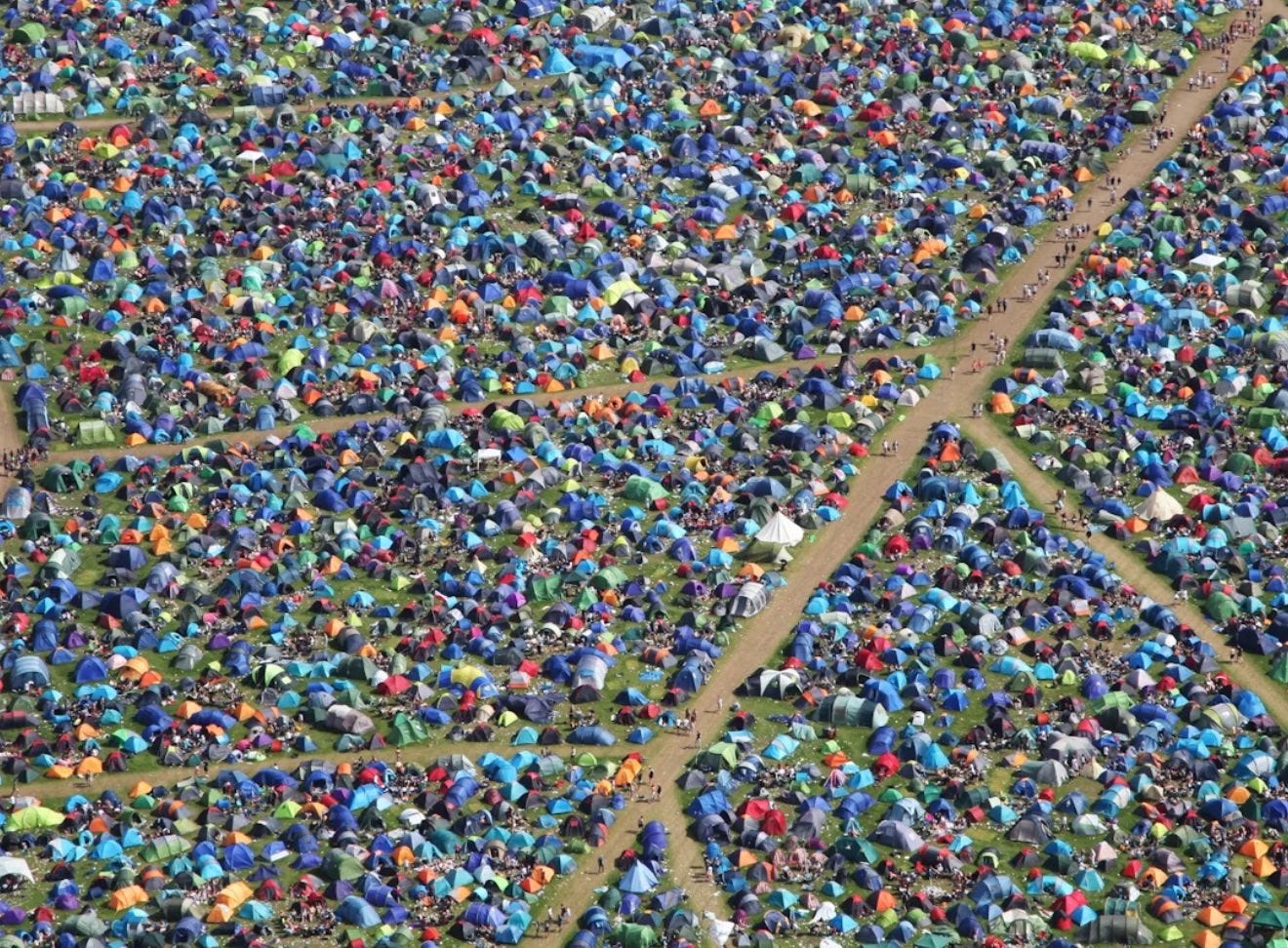Festivals Are Wild, But Nature Should Be Too
Music, community, creativity… and a lot of mess.
Summer festivals bring joy, music and community, but they can also bring serious environmental disruption. From flattened fields to abandoned tents, the impact on local ecosystems is often overlooked in the excitement of the weekend.
When thousands of people descend on green spaces, the effect on wildlife and ecosystems can be significant. Trampled vegetation, disrupted animal habitats, plastic pollution, noise, and light pollution can all drive species away, sometimes permanently. Even something as simple as loud music can alter the movement and feeding patterns of birds and small mammals.
Take Boomtown , for example, a legendary immersive festival hosted in the South Downs National Park in Hampshire. It brings in tens of thousands of people every summer, transforming quiet fields into a vibrant temporary city. The atmosphere? Magical. But the impact on nature? Often overlooked.
What Happens to the Land?
When you bring 70,000+ people onto grassland, woodland, or farmland, the pressure on the environment is huge.
Soil gets compacted, which might sound harmless, but it reduces its ability to absorb water and grow plants.
Trampled vegetation means fewer flowers for pollinators and less cover for small animals.
Wildlife is driven away by noise, lights, and constant foot traffic. Ground-nesting birds, foxes, badgers, hedgehogs, and even insects can all be affected.
Waste left behind, especially plastics, glitter, and abandoned tents, pollutes the land and can be deadly for animals.
Even biodegradable items take time to break down. Something as simple as glitter from a makeup look or a dropped cigarette butt linger in the ecosystem far longer than the festival itself.
So… What Can We Do About It?
A lot, actually, and it doesn’t need to ruin the fun.
As festival goers, we can:
Take everything home. That tent you leave behind? It’s probably not getting reused. Most go straight to landfill.
Choose reusables. Bring a refillable water bottle, cutlery, and a sturdy cup. It cuts down on single use waste massively.
Use biodegradable glitter or skip it altogether. And leave no trace, that includes cigarette butts, baby wipes, and food packaging.
Respect the land. Stay on marked paths, avoid trampling wildflowers or setting up camp in sensitive areas, and treat the space as borrowed, not disposable.
Small acts, multiplied by thousands of people, make a huge difference.
What Can Festivals Like Boomtown Do Better?
To be fair, Boomtown has already made progress. Their Eco Bond system encourages people to clean up after themselves, offering £20 in exchange for two full bin bags. They promote greener travel options and have worked to reduce plastic on site. But as festivals grow, so does the need to push harder.
Organisers can:
Ban more single use items across food stalls and bars
Make recycling, composting, and water refill stations unavoidable, not just optional
Work with local wildlife experts to identify sensitive habitats and protect them
Offset carbon in meaningful ways by partnering rewilding initiatives like LettsSafari. Imagine every ticket sale funding the planting of wildflower meadows, the restoration of hedgerows, or the protection of pollinators.
Communicate sustainability clearly and creatively, so it feels like part of the culture, not just a rule.
A festival that actively protects its site becomes even more special, a space people want to return to and preserve.
Why This Conversation Matters
Nature doesn’t exist just to host us once a year. The fields we dance in are home to ecosystems trying to survive, and festivals can either help or hurt that survival.
By bringing sustainability into the culture of festivals, we can shift mindsets. Not with shame or guilt, but with awareness. People genuinely care once they understand the impact.
At LettsSafari, we want festivals to continue, full of joy, noise, wild costumes, and creativity. But we also want the land they borrow to still be alive, buzzing, and biodiverse when we come back next year.



